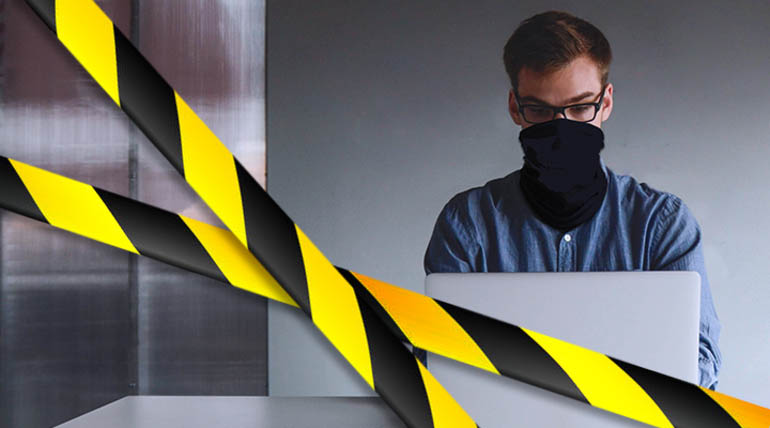
Bonton u komunikaciji i načinu izražavanja je nešto što se uči celog života, kako u privatnom tako i u poslovnom životu. Osnove dobrog uklapanja u kolektiv počivaju na dobroj komunikaciji. I sve bi ovo bilo super da se u naš život poslednjih godina nije upleo digitalni svet. Digitalni svet je sa sobom doneo novi vid komunikacije. Nažalost bonton iz realnog sveta se nije preneo na digitalni.
Celog života učimo od roditelja, škole i društva kako moramo i trebamo da se pridržavamo nekih normi ponašanja u ophođenju sa okolinom. U različitim fazama života, različito se i tumači ovo učenje.
Kao mališani, slepo verujemo svemu što mama i tata kažu. Učimo od njih i lepe, ali i one ružne stvari, koje oni nesvesno provuku u svom svakodnevnom govoru i ponašanju.
Već u tinejdž dobu, postajemo „najpametniji“ i tvrdimo da su sve to gluposti i da roditelji ništa ne znaju.
U toku studiranja, tvrdimo kako ne postoje društvene norme koje mogu jednu jedinku da sputaju u izražavanju slobode. Ne želimo da upadnemo u zamku stega koje donosi društvo. Ceo svet je naš.
A onda pređemo tridesetu i skapiramo da su roditelji bili u pravu, da je društvo htelo da postavi neke normative koje zaista treba poštovati, da je bonton nešto što te zaista uči životu.
Bonton u komunikaciji i načinu izražavanja je nešto što se uči celog života, kako u privatnom, tako i u poslovnom životu. Osnove dobrog uklapanja u kolektiv počivaju na dobroj komunikaciji.
I sve bi ovo bilo super da se u naš život poslednjih godina nije upleo digitalni svet. Digitalni svet je sa sobom doneo novi vid komunikacije. Nažalost, bonton iz realnog sveta se nije preneo na digitalni.
Društvene mreže, blogovi, vlogovi, forumi, samo su neke od tekovina digitalnog sveta. Ekspanzija interneta dovela je i do ekspanzije ovakvog vida komunikacije. Što zbog brzine života, što zbog lenjosti ili nekog drugog razloga, svi smo manje ili više prihvatili ove tekovine kao novi vid informisanja i druženja.
Šta nam je sve ovo donelo?
Donelo nam je mnogo dezinformacija. Mnogo poluistina i neistina. Mnogo ličnih i subjektivnih mišljenja. Mnogo gurua i life coach-eva, u svim sferama. Digitalni svet ne podleže bilo kakvim moralnim i društvenim normama. Ljudi koji u realnom svetu žive mirne i povučene živote, trudeći se da budu dobri prema okolini, u digitalnom svetu se pretvaraju u strašne nemani koje niko ne može da zaustavi, koji znaju sve i sve mogu da kažu. Ako zavirite na neku društvenu mrežu ili neki forum videćete gomilu NN avatara kako se prepucavaju oko najmanjih sitnica, pri tome ne birajući ni reči ni način kako se nešto kaže. Zajedničko im je nedostatak razuma.
U IT-u i uopšteno business svetu situacija nije toliko loša. Postoje relevantni forumi i blogovi koji pomažu da se adekvatno informišemo, ukoliko imamo konkretan problem ili želju da se dodatno edukujemo. Količina informacija koja može da se nađe na internetu konkretno za IT je presudna u načinu našeg poslovanja. Ali naravno ni tu nije sve sjajno. Borba između vendora se prebacila iz realnog u digitalni svet, što kroz agresivan marketing, što kroz plasiranje lažnih statističkih podataka, što kroz izbacivanje populističkih tekstova sa poluistinama ili neistinama o konkurenciji. Internet je prepun samozvanih gurua i raznoraznih „influensera“ koji za novac rade promociju jednih i blaćenje drugih.
Kako stati ovome na put?
Mislim da regulative o komunikaciji na internetu ili ne postoje ili se uopšte ne poštuju. Načini autentifikacije su vrlo jednostavni. Na taj način se daje mogućnost zloupotrebe i pravljenja paralelnih naloga, sakrivanja identiteta i vetar u leđa ljudima da se na internetu ponašaju „bahato“. Pretpostavljam da se ovo u budućnosti mora regulisati na drugi način. Svako mora da bude siguran sa kim komunicira. Nebitno je da li će se za autentifikaciju koristiti neki dokument, otisak prsta ili zenica oka, bitno je da se proces autentifikacije unapredi i da se bezbednost svih ljudi na mreži poveća, samim tim što će se izbeći mogućnost bilo kakve prevare.
Druga stvar su autorska prava. Ona su obesmišljena na internetu. Postoje neki pionirski pokušaji da se ovo reguliše, ali se ne vidi da je i jedan model urodio plodom. Ovo je veliki problem. Obesmišljavanjem autorskih prava obesmišljena je i umetnost (muzika, film, strip, književnost) kao i nauka (falsifikovanje doktorata, naučnih radova). Ova kriza je evidentna i veoma vidljiva, pogotovo u sferi kulture i umetnosti.
Kada je u mračnom srednjem veku, prepunom dogmi, stega i represija došlo do duboke krize nauke i umetnosti, pojavili su se humanizam i renesansa kao spas čovečanstva. Današnje vreme uništava kulturu i nauku na sasvim drugačiji način. Neistinama, poluistinama, naručenim marketingom i kampanjama, falsifikovanjem, astroturfingom. Pod hitno nam je potrebna nova renesansa, koja će stati na put ovim pošastima digitalnog doba.
Sigurno je da će do te renesanse vrlo brzo doći pojavom odgovarajućih regulativa. Humanizam i renesansa su ispravljale stvari skoro tri veka. Koliko će biti potrebno da se internet reguliše u ovom trenutku, niko ne zna. Način na koji će se primenjivati regulative mora da bude strog i rigorozan, ali istovremeno i takav da se to ne podvede pod neku vrstu cenzure i represije.
Bez obzira na sve, digitalni svet je neminovnost i svi moramo da se adaptiramo na njega. Ono što nam definitivno nedostaje je neki digitalni bonton koji bi pratio potrebe digitalnog sveta, ali bi ujedno očuvao etičnost komunikacije. Hajde da svi damo svoj doprinos ovome i unapredimo našu komunikaciju na internetu. Nije teško biti fin.



